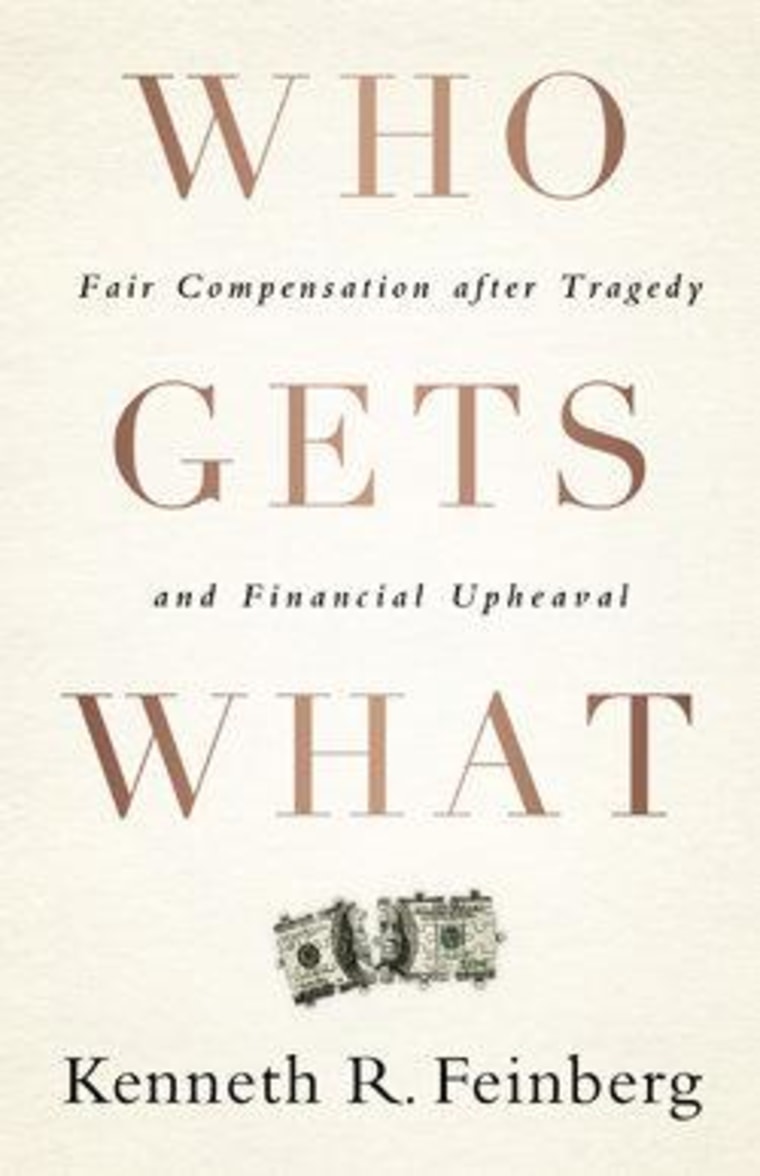The public’s interest grows all the more acute when special funds are created to pay victims, or when corporate officials deemed responsible for a financial crisis are called on the carpet. This is not ordinary, not everyday, not mainstream. Now compensation decisions take on a whole new life. What is usually private becomes very public. And it is not just one victim, or one CEO, who becomes the subject of public interest. Now thousands of victims or scores of corporate leaders are affected by the crisis. A collective focus zeroes in on individual considerations of compensation, damage, or pay. An often passionate debate ensues, not only among the public but also among the victims and corporations themselves.
Human nature is a key element of this debate. Special compensation programs aimed at a select few inevitably lead to heightened expectation: “This program was created for me. I am entitled to be paid. I deserve compensation. I am worthy.” What results is a sense of entitlement, a resolute belief that the dollars to be exchanged are justified. Both the innocent victim of wrongdoing or tragedy and the corporate officer working for a pay package believe in absolute good faith—that they are entitled, that they deserve, that they have every right to demand and expect.
Read more Morning Joe book excerpts
This leap in thinking is easy to understand. To the recipient of compensation, the public has already acknowledged the legitimacy of this sense of entitlement by establishing a special compensation program in the first place; fellow citizens and lawmakers have validated the merit of their own individual claims. Similarly, designated corporate executives are only too ready to mount the soapbox and defend the appropriateness of their pay: “The government expects me to justify my worth. Great! I will do so.”
As administrator of these programs, I am expected to deliver the goods—to pay the claims, to make victims whole, to ratify a corporate compensation package. If I fail to do so, I am accused of demeaning both the claim and the claimant. On the other hand, if I ask for evidence of eligibility, documentation of damage, or comparative corporate pay practices, I am accused of being a pettifogger and micromanager, nickel-and-diming worthy individuals and reducing them to figures in a ledger.
Compounding the problem is the fact that everybody counts other people’s money. It is a natural human trait. Comparison shopping is the rule. The absolute yields to the relative. And it gets very personal. “Rough justice” in establishing these special compensation programs—the pursuit of the greatest good for the greatest number—means very little to each individual expecting fair treatment from the administrator or special master. Their own individualclaim is the most important claim in the world, and their own compensation package is all that matters. An award calculation that, for perfectly valid and appropriate reasons, is less than their next-door neighbor’s award can trigger outrage: “What do you have against me? Why are you questioning the value of myclaim? Why are you paying others more than me?”
The problem is also exacerbated when there are only finite dollars to distribute. Counting other people’s money becomes automatic and self-serving. The Peter/Paul principle is immediately invoked: “You must be paying me less to make sure that other claimants get more.” No wonder that as an administrator, I always prefer having unlimited funds to work with—one less emotional issue to deal with in meeting with claimants…. . . .
…Special compensation programs do raise fundamental questions about fairness. Why do some victims of life’s tragedies receive a fast-track ticket to quick cash, when other innocent victims do not qualify or must patiently wait their turn to gain access to the courtroom? Why this special treatment for a select few? Conversely, the top twenty-five corporate executives in the seven companies subject to the pay czar’s commands may understandably question why theyhave been singled out for special treatment; what about the top fifty executives, or the top one hundred? And why only seven companies instead of seventy or seven hundred?
These are troublesome questions. In our society, which frowns on elitism and promotes the concept of equal protection under the law, there is unease in promulgating special rules for special people. And it must be admitted that, at least in this sense, these programs are inherently inequitable. All special compensation programs confront this same tension: special rules for a select few.
This is why these compensation programs are exceedingly rare—and should remain so.
